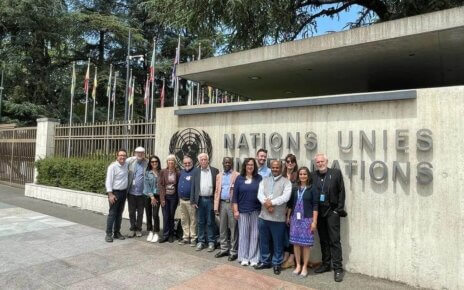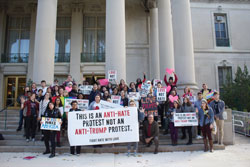This year the Free Application for Federal Student Aid (FAFSA) has undergone multiple developments. Such changes include adjusting the deadline to submit financial information to Oct. 1, as well as changes in required financial filing information.
FAFSA had a long-time submission date of Jan. 1, which allowed families to submit information about their financial situation in hopes of securing loans, grants, and scholarships from the federal government for a college-bound family member.
However, the previous date of only allowed schools a few months before they could put together a financial aid package that factors heavily into a student’s decision. The later submission date also impacted students as well.
“One of the big issues that you would run into [with the old FAFSA] was a student applying for admission in September or October of their senior year and not receiving their financial aid packet until March or April from some institutions. This change gives students and their families more time to sit down and work together to make a final decision on the school that is the best fit for them financially,” said Kamal Kornegay, Associate Director of Undergraduate Admissions. An earlier timeline means that families will have a better idea of what institutions are feasible based on financial accommodations.
Since the admissions cycle can easily take up much of senior year for high school students, it is easy to see how getting a major task like the FAFSA out of the way earlier might help ease stress later down the line.
“I think that, ultimately, this is a good thing. It will give prospective students financial aid information much earlier in the college selection process,” said Claire Alasio, the Direcotr of Financial Aid. “This will allow them to make better informed decisions as to whether or not a school that they are considering is, in fact, an affordable option for them. Better to find that out earlier on in the process, than to get your heart set on a particular school only to realize it is not a viable option financially.”
According to Alasio the University will start sending packeges out to prospective students in January. Before the FAFSA changes they had typically been sent out in February.
Although the federal due date has changed, schools can still dictate what their individual due dates will be. As with any major change in the admissions process, Monmouth University is taking active steps to make sure that the Class of 2021 will have the resources needed to make an informed decision.
“Our financial aid office promoted the new FAFSA start date on all materials and social media outlets. Counselors from the office go out and speak at high schools throughout the area making sure that every student that we meet is aware of the changes to the new start date and prior tax year information,” said Kornegay.
He also noted that the Admissions and Financial Aid Offices met earlier this year to ensure that University faculty and staff were up to date on the new FAFSA requirements and changes.
Another major change to the FAFSA application lies in the information required for filing. With the new format, families must report income from an earlier year, even if their financial situation has changed significantly. If this is an issue, the federal government recommends individually discussing a situation with the school’s financial aid office.
“I just hope that sending in older information doesn’t decrease the amount of aid you get. I feel like that wouldn’t really be fair to students looking for higher education,” said Brian Mathew, a freshman student.
Following the submission of the FAFSA, a student’s information would then be processed by the school’s financial aid office to determine how much monetary aid they would need to attend their preferred institutions. Schools themselves have work-study programs and loan programs they use to make sure their students can have a reasonably affordable education.
“I always tell students to take advantage of the resources available,” said Korenegay. “Our financial aid office is making a conscious effort to be more accessible during this time. Students and families are encouraged to contact them in person, by phone, and on their Facebook page or Twitter account.”



